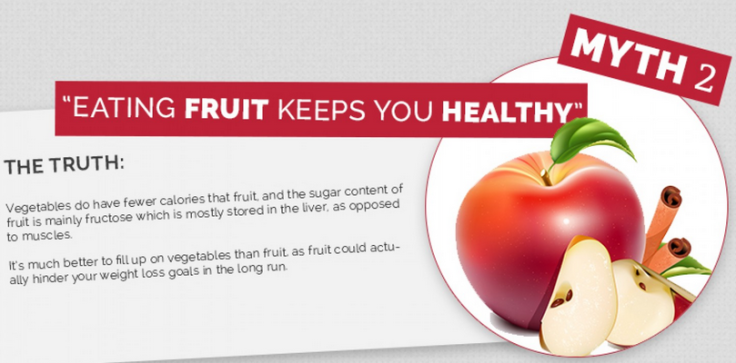Smart Fitness: 7 Diet And Exercise Myths Debunked

When it comes to fitness, there are myths and half-truths that are usually harmless, but others may actually be dangerous. The truth is what works for one person at the gym may not work for the other because everyone reacts to exercise differently. In Focus Training's infographic “Fitness Myths Debunked,” takes on some of the most common fitness myths, from the belief “gaining weight means you’re fat” to “healthy outside equals healthy inside,” for a healthier, safer, and effective workout.
We all know the best way to shed the pounds is through diet and exercise. However, strength training exercises can naturally lead to weight gain, debunking this common myth — “if you’re heavy, you’re fat.” Training stimulates the body to build lean muscle, which improves your metabolic rate. However, this lean muscle contains a lot of water and weighs a lot, which can contribute to a tip in the scale.
Inflammation can also be the source of weight gain from working out. It can lead to water retention during the first few weeks of training. Muscle also tends to be a lot denser than fat, meaning the more muscle you have, the heavier you could weigh.
The way you look can also say little to nothing about your health. A popular misconception is “healthy outside equals healthy inside.” There are diseases and toxins that manifest themselves in the body without any physical symptoms — asymptomatic ones. Examples include whooping cough, chlamydia, and HIV-1.
Lastly, you can’t be healthy and fit without a proper diet, but what should you eat? Fruits? Vegetables? Salads?
Dieters are under the false pretense “eating fruit keeps you healthy.” The sugar content in fruit, mainly fructose, is stored in the liver as opposed to muscles. This can lead to insulin resistance, elevated blood cholesterol levels, and fat gain, according to a 2005 study published in the journal Nutrition & Metabolism. Vegetables are a better option because they have fewer calories than fruit and won’t impede on your weight loss goals.
View Focus Training's infographic below to dispel other common fitness myths you probably still believe.

You can also find more infographics at Visualistan.



























